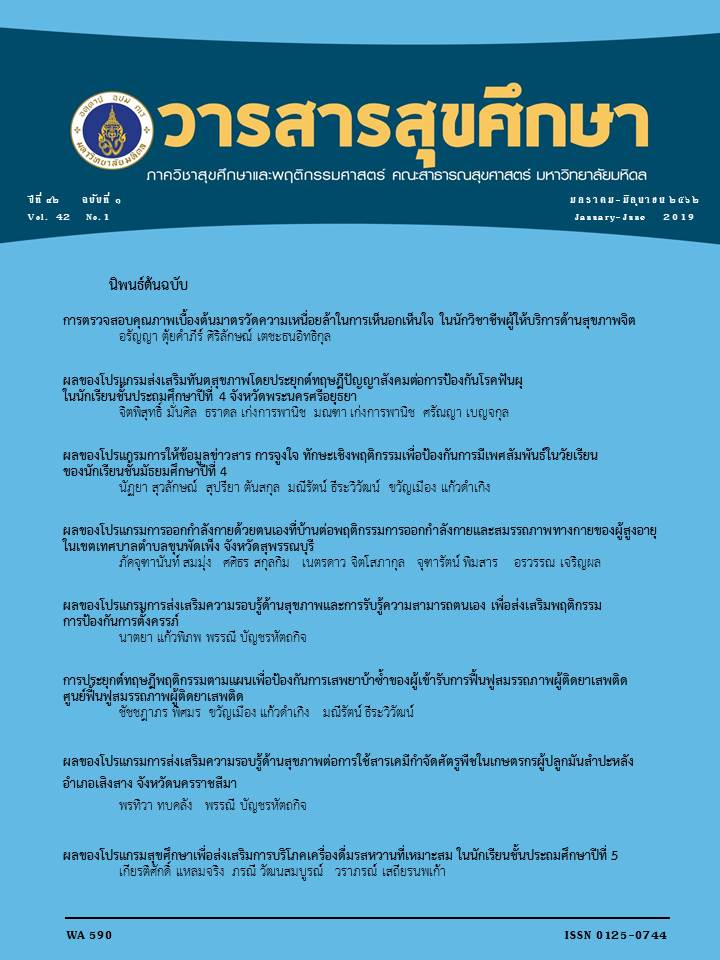The Effects of Health Education Program For Promoting Appropriate Consumption of Sugar-sweetened beverages among Grade 5 Students
Main Article Content
Abstract
Inappropriate consumption of sugar-sweetened beverages of school children can affect
their health. This quasi-experimental two-group pre/post-test design aimed to investigate the
effects of health education program for promoting appropriate consumption of sugar-sweetened
beverages among grade 5 students. Sixty-six students were recruited. The students were assigned
to be an experimental group (n=35) and a comparison group (n=31). The six sessions of health
education program which designed based on the Social Cognitive Theory were provided for the
experimental group, while the comparison group received the usual school health education
session. The study period was seven weeks. The data were collected using questionnaires about
knowledge of sugar-sweetened beverages, perceived self-efficacy and outcome expectation for
appropriate consumption of sugar-sweetened beverages and appropriate consumption behavior of
sugar-sweetened beverages. Chi-square test, Fisher’s Exact test, Independent sample t-test, MannWhitney U test, Paired sample t-test, and Z-test were used for data analysis.
The results showed that the experimental group had significantly better changes in
knowledge of sugar-sweetened beverages, perceived self-efficacy and outcome expectation for
appropriate consumption of sugar-sweetened beverages than those of pre-experiment and the
comparison group (p< .001). Additionally, after the intervention, the experimental group showed
significantly higher proportion of change in improved behavior levels than the comparison group
did (p< .05). The research results demonstrated the effectiveness of the program, which could be
applied for school health education. However, further retesting of the program is needed to
confirm its effectiveness as well as a generalization view.

